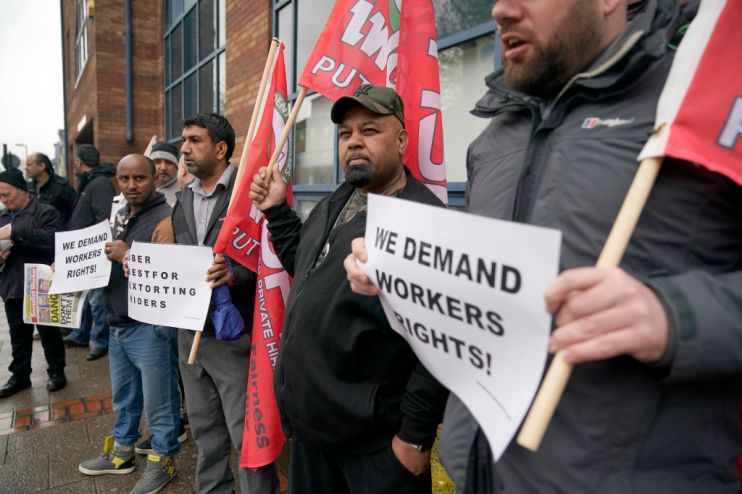Ride-hailing firms have ‘moral imperative’ to give drivers’ workers rights, says Heidi Alexander

London’s deputy mayor for transport has said that ride-hailing firms have a “moral imperative” to offer their drivers basic workers’ rights.
Speaking to City A.M., Heidi Alexander said that City Hall would like to see minicab operators like Bolt and Ola adapt their business models to embrace the Supreme Court’s historic judgement on Uber.
Her comments add yet more pressure to an industry that has come under ever more scrutiny over employment practices in recent years.
Earlier this week Uber’s UK general manager Jamie Heywood said that its rivals were denying their drivers their rights and needed to make “material changes”.
When asked about Heywood’s comments, Alexander said: “I think from a moral point of view, we would want to see all minicab workers in London being able to earn a decent wage, be able to take holidays, and earn sick pay”, she said.
“I think the point that [Heywood] was making was that perhaps not all minicab operators are taking the same approach. I hope that the legal decision and the court case that happened are an impetus for raising standards across the board in the industry.
“I think that there is a moral imperative in ensuring that people who are picking us up and driving us around London can actually earn a decent wage, and have proper rights when they’re working.”
Unions welcomed Alexander’s comments, but said that Transport for London (TfL) should make better workers’ rights a condition of an operator’s license to all private hire operators.
At the moment, TfL’s powers do not extend to workers rights, as Alexander explained. “From a TfL perspective, we have powers to licence operators from a safety perspective, but we are limited as to legally what we can do.”
Back in February, the Supreme Court ruled that Uber’s drivers did count as workers because of their “subordination and dependency” on the firm, after a five year legal challenge from a group of former drivers.
The decision prompted Uber to extend rights like sick pay, paid annual leave and the minimum wage to its drivers in March, but other firms have yet to follow suit.
“It doesn’t make sense. Other operators, I believe, need to step up. They have not made any material changes,” Heywood told the Times.
Ola declined to comment, but Sam Raciti, regional manager for Bolt, told City A.M.: “We totally agree with Heidi that drivers should earn a decent wage. Bolt has some of the lowest commission levels in London – as low as 10 per cent for drivers with an electric vehicle.
“We respect our drivers so don’t block them for declining trips or for taking trips offered by competitors, which is why they keep choosing to drive with us.”
TfL should ‘grasp the nettle’, say unions
Despite the current legal situation, both GMB – which recently signed a deal with Uber to represent its drivers – and the App Drivers and Couriers Union (ADCU) said that it was vital TfL did more.
Mick Rix, GMB national organiser said: “We’re pleased Heidi agrees with what GMB’s been saying for years; that not only should these ride hailing companies be providing worker rights, but also the other private hire operators that are licensed by London regulator TFL.
“We believe the Mayor and TFL should take steps to make better workers’ rights a condition of an operator’s license to all private hire operators.
“Unfortunately, some private hire companies just won’t do this unless they’re forced to do so, and that is where the deputy mayor and the regulator TFL must step in.”
And the ADCU, which recently launched a 24 hour boycott of Bolt over the status of its drivers, said that TfL needed to “grasp the nettle”.
“We welcome what the Deputy Mayor has to say but she must immediately back this up with tough regulatory enforcement action from TfL by making worker rights a condition of license for all licensed private hire operators” said general secretary James Farrar.
“In 2017, the London Assembly passed a resolution demanding that TfL do just this but the regulator failed to act. TfL continues to refuse to recognise our union and the Deputy Mayor has repeatedly refused to meet us to discuss the worker rights catastrophe that is the London private hire trade.
“Worker rights for minicab will inevitably mean higher fares but it is not clear that this is a political nettle the Mayor’s administration is yet ready to grasp.”